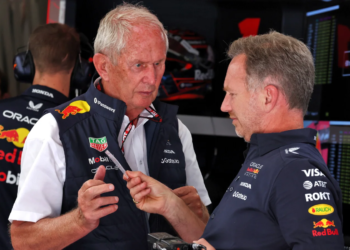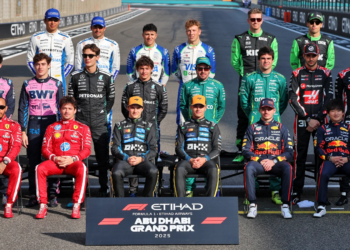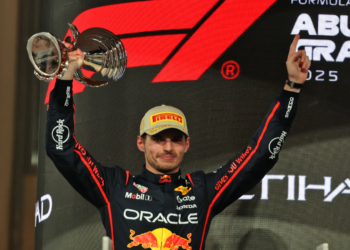Formula 1’s European season resumes with the first back-to-back event of the campaign at Circuit Paul Ricard in France. Motorsport Week takes a look at some of the key talking points.
Can Mercedes equal, or break, its own record?

Lewis Hamilton is surely inching his way closer to a sixth title while simultaneously edging towards Michael Schumacher’s once thought unbeatable records. It’s not out of the question that Valtteri Bottas could threaten his team-mate, but a 29-point gap, recent form, not to mention recent history, suggests it’s a long shot at best. Mercedes has now won all seven of this year’s races and it also claimed the final two events of 2018 courtesy of Hamilton. Everyone was gearing up for Hallowe’en the last time a non-Mercedes driver secured a win. As a result it has an opportunity to equal its own team record of 10 straight victories, a feat it achieved through its dominant spell in 2015-16 and then again in 2016. Only McLaren, in 1988, has ever scored more than 10 straight wins (it took 11 on the bounce before its Monza defeat). Mercedes held the fastest package in France last season and Paul Ricard’s layout, on paper, is more suited to the W10 than the SF90. Will it be 10 for Mercedes?
Will Ferrari be more Canada or more Spain?
Ferrari entered 2019 with title ambitions and while publicly it refuses to rule out its challenge, it must overcome a 123-point deficit if it wants to beat a slicker and faster Mercedes team. Its 10-race drought should have come to an end in Canada as Sebastian Vettel’s inspired pole lap allied to the full-throttle sections that suited the SF90’s strengths gave it the perfect platform. We all know what happened next. Ferrari had the pure pace to win in Canada, should have won in Bahrain, and could have won in Azerbaijan. But at the other four events it has been substantially off the pace, either the second- or third-best team, with its issues most pronounced through slow- and medium-speed turns. "The car is exactly the same as we had in Spain, no upgrades from then, so let’s say our weaknesses we have still on the car,” said Ferrari boss Mattia Binotto in Canada. "It is as simple as that. We need to work, try to improve as there will be other races that are not like Canada so we need to keep fighting and challenging them." It will have some small updates this weekend, but still expects to trail Mercedes. And could it even be threatened by a Red Bull team equipped with Honda's Spec 3 engine?
Will it be va va voom for Renault?

Renault’s Canadian Grand Prix result was a timely boost for the manufacturer which endured a difficult start to 2019 amid reliability setbacks – owing to conrod problems – strategic issues and a couple of driver blunders. It lifted the team to fifth in the Constructors’ Championship, just two points behind McLaren, and now surely firmly odds-on to match 2018’s fourth. It is nonetheless still a crucial phase for Renault as it returns to home turf keen to demonstrate that its progress is tangible and that its long-term title goal remains realistic. Renault has pinpointed 2021 regulations as its opportunity but is frustrated that the changes may not be as widespread as initially expected; it is in a holding pattern, of sorts, of trying to close down Formula 1’s big three but without having the budget or resources with which to do so. But what it has to do from now, at least, is to always be chipping clear of that midfield scrap.
Can home racers kick-start flailing seasons?
France lost one of its representatives this year amid Esteban Ocon’s seat drama and its two remaining racers have had a lacklustre campaign. Pierre Gasly stepped up to Red Bull earlier than expected but he has struggled to marry his naturally aggressive driving style to the RB15, which has been suffering from mid-corner instability. Gasly has yet to out-qualify team-mate Max Verstappen, often facing a large deficit, and has been comfortably beaten in race trim as well. Few would have expected Gasly to waltz into Verstappen’s team and gain the upper hand, but not many expected such an anonymous showing. Romain Grosjean, meanwhile, has not had a terrible season on a personal scale – especially in comparison to his nightmare 2018 – but arrives in the south of France with just two points to his name, leaving him ahead of only Antonio Giovinazzi in the midfield standings. There was the pit stop woe in Australia, Haas’ dire race pace across the next three events, and his team-mate’s questionable defending in Spain. A stellar result for both this weekend would give the home crowd, and themselves, something to cheer.
Will organisational work pay off?

Neither Formula 1 nor French Grand Prix organisers covered themselves in glory 12 months ago. Officials were warned that access would be tricky but blithely carried on regardless, resulting in traffic chaos on Friday, with multiple stories of woe (including one team that almost missed FP1 due to its engineers bring stranded), while Saturday and Sunday were also chock-a-block at times. Closing the circuit gate for an hour one evening, preventing paddock folk from exiting, was not well received. The contempt with which officials dealt with the situation was also lamentable. Changes have since been enacted. Organisers, joined this year by ex-McLaren chief Eric Boullier, have worked extensively on an overhauled plan, which includes carpool lanes, better access for buses and taxis, the tweaking of campsite opening hours as well as altered car park management. An App will also be available to assist those travelling by car. The changes have to work, for Paul Ricard cannot afford a repeat of last year.







Discussion about this post